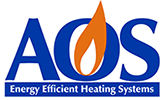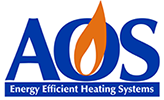AOS Blog
How Do I Know If My Home Is Suitable for an Air Source Heat Pump?
Air source heat pumps (ASHPs) are becoming an increasingly popular choice for homeowners looking to reduce their carbon footprint and lower their energy bills. These systems extract heat from the outside air to warm your home and provide hot water, making them a highly efficient and eco-friendly alternative to traditional gas or oil boilers.
However, before investing in an air source heat pump, it’s essential to determine whether your home is suitable for this technology. In this guide, we’ll explore the key factors that influence the effectiveness of an ASHP and help you understand if your home is a good candidate.
1. Does Your Home Have Good Insulation?
One of the most important factors in ensuring an air source heat pump works efficiently is the level of insulation in your home. Heat pumps operate at lower temperatures than conventional gas or oil boilers, which means a well-insulated home is crucial for retaining heat and maximising efficiency.
Signs Your Home Has Good Insulation:
✅ Loft insulation of at least 270mm (recommended by the UK government).
✅ Cavity wall insulation or solid wall insulation to prevent heat loss.
✅ Double or triple glazing to improve energy retention.
✅ Draught-proofing around windows and doors.
If your home lacks proper insulation, you may need to invest in upgrades before installing a heat pump to ensure you get the most out of the system.
2. Do You Have Enough Outdoor Space?
An air source heat pump requires an outdoor unit, which needs to be positioned in an area with good airflow. Ideally, this unit should be placed against an external wall or in a garden space where it can draw in air efficiently.
Things to Consider About Outdoor Space:
✅ There should be at least 1 metre of clear space around the unit.
✅ It should be placed away from obstructions like fences or bushes.
✅ The surface should be solid (e.g., a concrete base) to support the unit’s weight.
If you live in a flat or a property with very limited outdoor space, you may need to explore alternative heating options. Find out more about how much space your need.
3. What Type of Heating System Do You Currently Have?
Air source heat pumps work best with low-temperature heating systems such as underfloor heating or large radiators. This is because they heat water to a lower temperature compared to traditional boilers, meaning they require larger surface areas to distribute warmth effectively.
Ideal Heating Setups for a Heat Pump:
✅ Underfloor heating, which provides even and consistent heating.
✅ Large, energy-efficient radiators designed for low-temperature systems.
✅ Well-designed heating circuits that allow for gradual heat distribution.
If your home has small, single-panel radiators, you may need to upgrade them to maximise the efficiency of your air source heat pump.
4. What Is Your Energy Usage and Heating Demand?
The size of your home and the way you use energy will determine whether an air source heat pump is the best choice. If you have high heating demands, such as heating multiple rooms at once or needing lots of hot water, you’ll need to ensure your heat pump is appropriately sized.
Factors That Affect Heating Demand:
✅ The number of occupants in your home.
✅ The number of rooms and bathrooms needing hot water.
✅ The level of insulation and airtightness.
✅ Your typical heating habits (e.g., running the heating all day vs. only in the mornings and evenings).
A professional heat pump installer can carry out a heat loss calculation to determine the right size of heat pump for your home.
5. Is Your Property Listed or in a Conservation Area?
If your home is a listed building or located in a conservation area, you may need planning permission before installing an air source heat pump.
Regulations to Consider:
✅ Permitted development rights allow heat pumps in most homes, but restrictions apply in conservation areas.
✅ Listed buildings may require special approval due to aesthetic and structural considerations.
✅ Noise restrictions could apply in densely populated areas.
If you’re unsure, check with your local council or consult a professional installer who can guide you through the process.
6. Are You Looking for Long-Term Savings?
While air source heat pumps have higher upfront costs than gas boilers, they offer significant savings in the long run. They are highly efficient, meaning they use less electricity to produce heat compared to traditional systems. Additionally, they are eligible for financial incentives such as the Boiler Upgrade Scheme (BUS), which provides grants for installing low-carbon heating systems.
Long-Term Benefits of an Air Source Heat Pump:
✅ Lower energy bills compared to oil or LPG heating.
✅ Reduced carbon footprint and increased energy efficiency.
✅ Eligibility for government incentives to offset installation costs.
✅ Increased property value due to eco-friendly heating.
If you’re planning to stay in your home for many years, an air source heat pump can be a cost-effective and environmentally friendly investment.
Conclusion: Is Your Home Suitable for an Air Source Heat Pump?
To summarise, your home is likely suitable for an air source heat pump if:
✔️ It has good insulation to retain heat efficiently.
✔️ You have enough outdoor space for the unit.
✔️ You use underfloor heating or large radiators for effective heat distribution.
✔️ Your heating demand aligns with the capabilities of an ASHP.
✔️ Your property is not restricted by planning regulations.
✔️ You’re looking for long-term energy savings and eco-friendly heating.
If your home meets most of these criteria, an air source heat pump could be a great solution for reducing your energy bills and lowering your carbon footprint.
At AOS Energy Efficient Heating Systems, we specialise in air pump installation in Buckinghamshire. Our expert team can assess your home, recommend the best system for your needs, and handle the entire installation process.
Contact us today for a free consultation and take the first step towards a more energy-efficient home!





